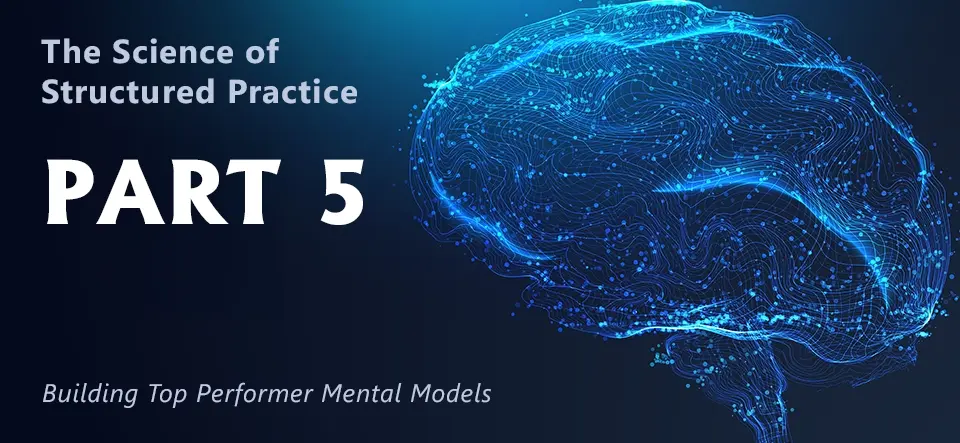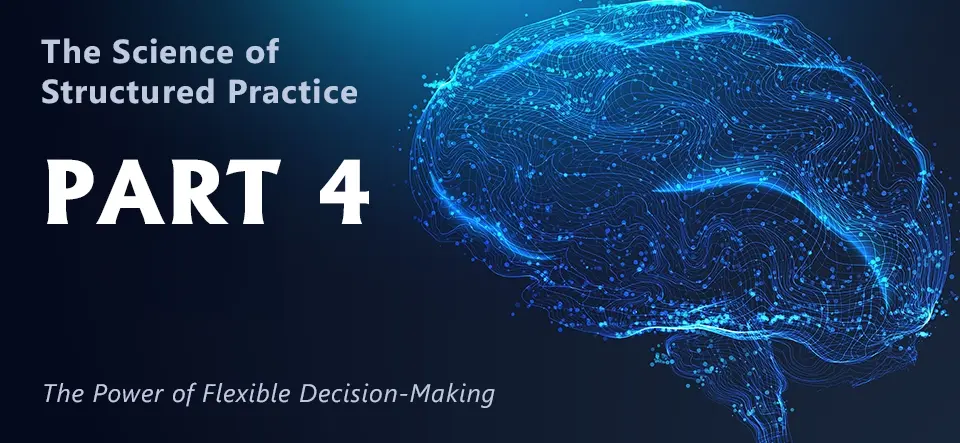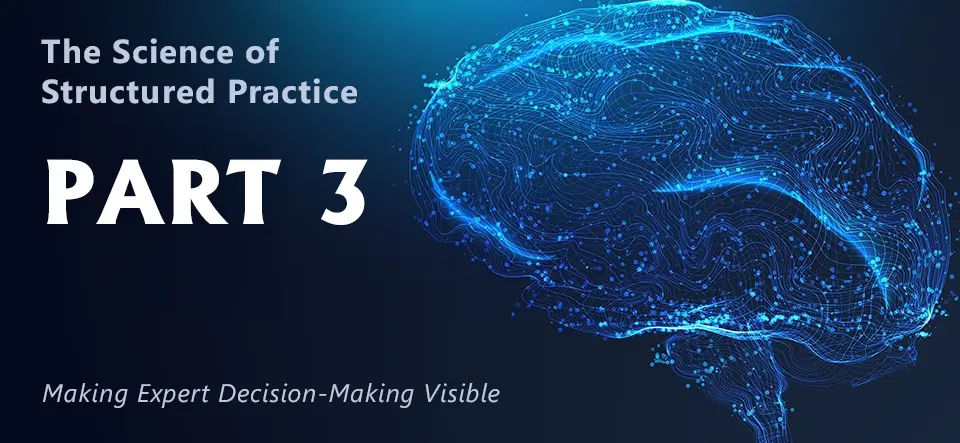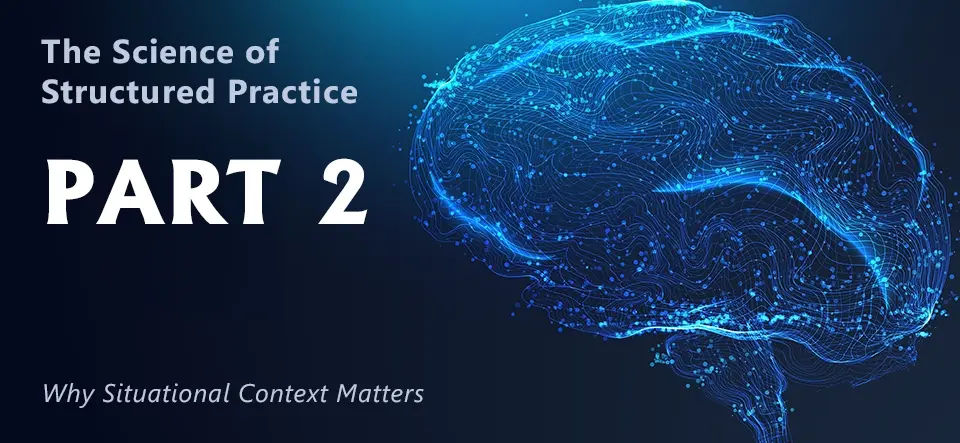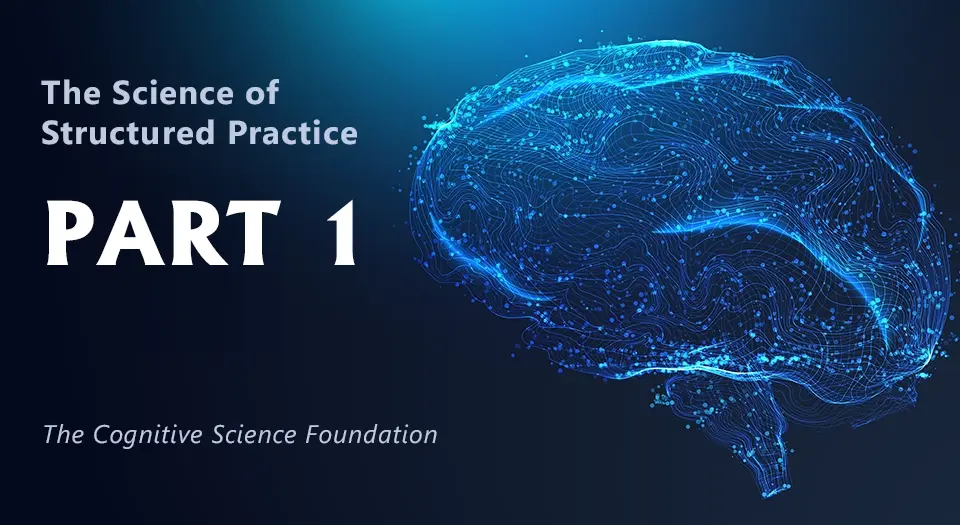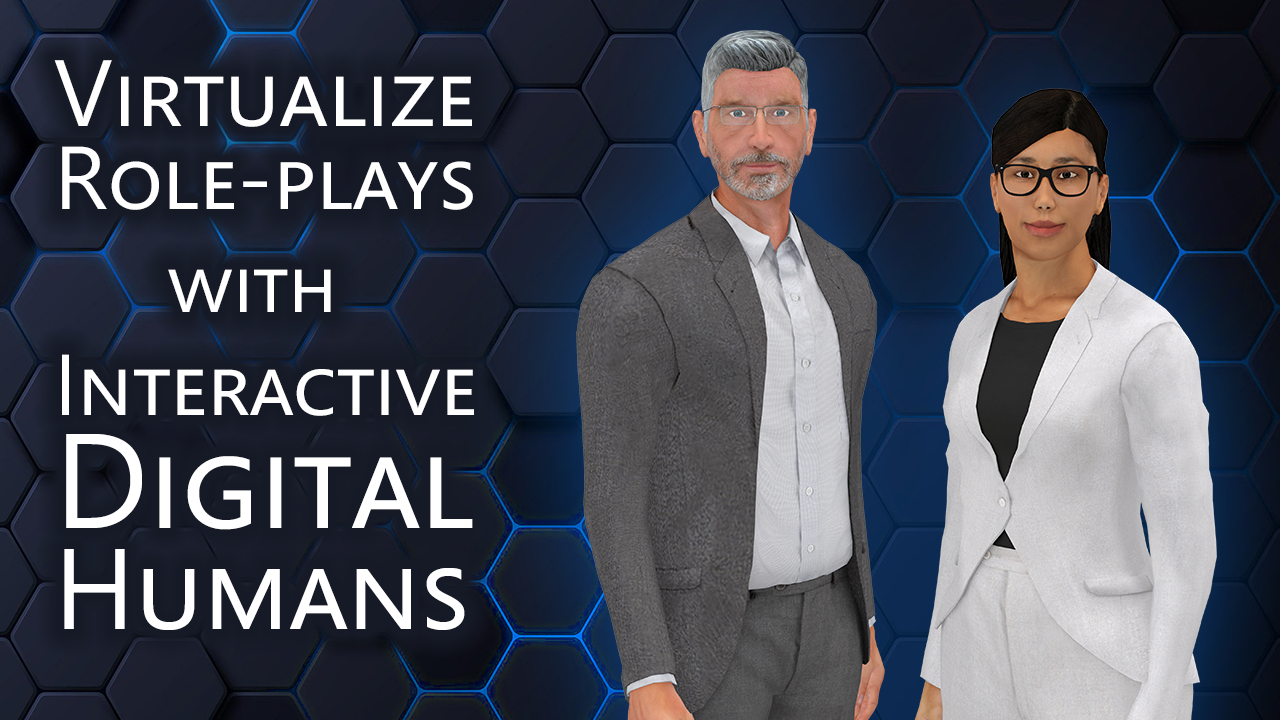Have you ever wondered why top performers consistently make better decisions even in new situations? The secret lies in their mental models - the sophisticated frameworks they use to understand situations and choose optimal approaches. These aren't just simple decision trees or memorized processes. They're rich, dynamic ways of seeing the world that transform how they recognize patterns and make decisions.
The Science of Structured Practice, Part 5: Building Top Performer Mental Models
By Douglas Seifert, PhD on Dec 6, 2024 9:54:20 PM
The Science of Structured Practice, Part 4: The Power of Flexible Decision-Making
By Douglas Seifert, PhD on Dec 5, 2024 12:00:51 AM
Your top performers likely excel in two critical ways: They adapt their approach based on each situation rather than using a one-size-fits-all strategy, and they confidently apply new approaches even when situations don't perfectly match their training.
Here we'll explore how cognitive flexibility principles and structured practice, delivered through immersive simulation technology, help teams develop this crucial capability by exposing them to the ways top performers adapt to different situations.
The Science of Structured Practice, Part 3: Making Expert Decision-Making Visible
By Douglas Seifert, PhD on Dec 3, 2024 11:09:33 PM
Your top performers might hold the key to transforming organizational performance: They consistently make better decisions, and sharing that success can elevate performance across teams. Why? Because their expertise isn't just knowledge - it's the ability to recognize patterns and make better decisions in fluid, real-world situations. Here we'll explore how cognitive apprenticeship principles and structured practice, delivered through immersive technology, can help you close the gap between top performers and the rest of your team.
The Science of Structured Practice, Part 2: Why Situational Context Matters
By Douglas Seifert, PhD on Dec 3, 2024 9:39:20 PM
Want to transform performance? Put people in authentic situations. But not just any situations - they must capture real organizational challenges and provide structured paths to better performance. Put a sales manager in a real coaching scenario, a physician in an actual patient case, or a leader in a true team challenge - and watch performance improve dramatically. Why?
Because authentic situations are essential for developing impactful decision-making skills.
The Science of Structured Practice, Part 1: The Cognitive Science Foundation
By Douglas Seifert, PhD on Dec 3, 2024 4:15:26 PM
Every organization has them: top performers who consistently make the right decisions in challenging situations. They make it look easy - but it's not just about what they know. It's about how they developed the skills to apply that knowledge effectively.
Here we'll explore how cognitive science reveals the way top performers develop these capabilities, and show you how structured practice, powered by immersive technology, can help you capture and scale these behaviors to elevate performance across your teams.
Mental Models: The Secret to Effective Education and Training Outcomes
By Douglas Seifert, PhD on Dec 6, 2023 3:13:54 PM
Join us to explore a new framework of mental model-driven educational design that will improve outcomes within any program, and optimize educational investments.
5 Advantages of Virtualizing Role-Plays with Digital Human Technology
By Douglas Seifert, PhD on Jul 22, 2022 10:40:07 AM
Yes, peer-to-peer training role-plays can be a bit awkward. What if we could immerse trainees in situational decisions with interactive digital humans instead? And what if we could combine these virtual interactions with skill development methodologies, and analytics? In this article we will explore doing just that. We will cover: when skill development is important, the advantages of virtualizing role plays, how the underlying technology works, and the steps to build your own virtualized role plays.
Let’s get started…
Incorporating Skill Development into Clinical Medical Education via Corrective Mentoring
By Douglas Seifert, PhD on Nov 5, 2021 12:02:34 PM
Wouldn’t it be fantastic to have a mentor or coach help you make decisions? Yes! An argument can be made that in a complex area like medicine, mentoring is not a nice-to-have, but is required to achieve meaningful behavior changes in clinical practice. Here, we will explore the value of corrective mentoring within medical education initiatives, show changes in competency within immersive programs using corrective mentoring, and highlight the underlying cognitive science of skill development that drives its effectiveness. Skill development serves as the bridge between “knowledge” and clinically treating patients.
Skill-Driven CME: What We Can Learn from Corporate Training
By Douglas Seifert, PhD on Feb 25, 2021 4:10:37 PM
Successful corporate training is all about behavior change. Employees adopt new behaviors that translate into increased performance and better outcomes. Continuing medical education (CME) has strikingly similar goals. In this first skill-driven CME article, we will explore what has, and has not, worked well in corporate training, and apply these insights to CME.
Call of Duty for Business: How Virtual Practice Can Deliver Performance
By Douglas Seifert, PhD on May 29, 2020 12:54:50 PM
(Originally published in Training Journal)
Training provides knowledge, but without practice, it quickly recedes and becomes a wasted investment. What can we do?
Call of Duty immerses gamers in a realistic virtual experience. Virtual game technologies can be adapted to do the same thing for business people – immerse them in realistic situations where they can safely practice making decisions, and then receive expert feedback and coaching. It’s a perfect fit for many training applications, such as leadership development, or adopting new processes in sales and coaching.


